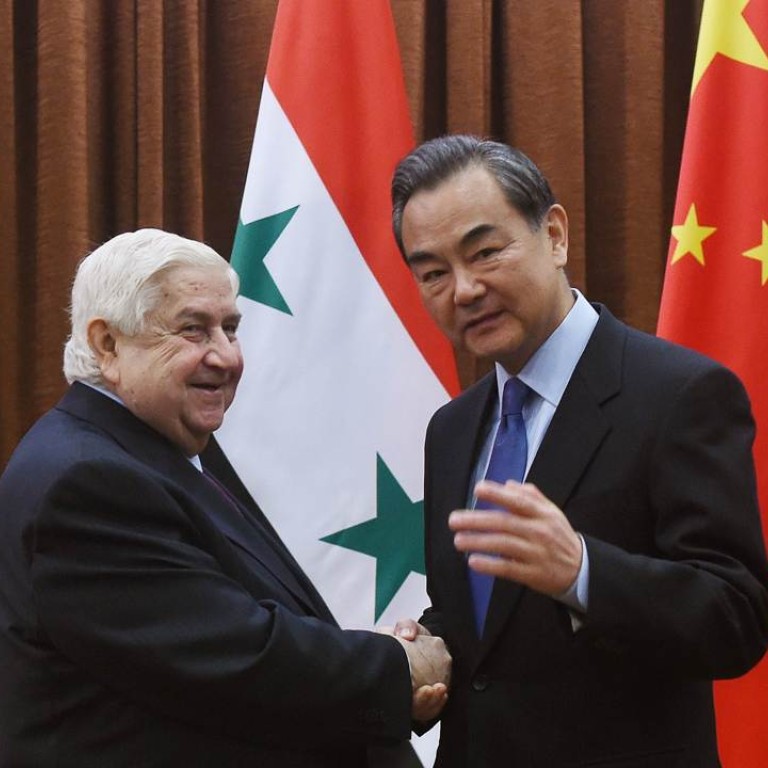
Beijing’s initiative on Syria highlights the constraints of Chinese diplomacy
Emanuele Scimia says while China’s involvement in Middle East peace talks would be welcome, it faces many difficulties in achieving results in a complex geopolitical situation
China has launched a fresh diplomatic initiative on Syria and some view this as a prelude to a growing involvement in the Middle East’s security; a move that marks an apparent shift from Beijing’s traditional policy of non-interference in the internal affairs of other sovereign states.
The problem for China is that diplomacy can hinge on trade and investment, but it must also be supported by a military presence
During a visit to China, Walid Muallem, Syrian deputy prime minister and foreign minister, repeatedly talked of Beijing’s potential to play an important role in promoting a political accommodation of the Syrian crisis and fighting terrorist groups like Islamic State and the al-Qaeda-affiliated al-Nusra Front.
A few days earlier, China voiced its willingness to host talks between the Syrian government and local opposition groups.
Beijing is the world’s largest importer of oil from the Middle East and has an interest in stability in the region, which is also to be a transit space for the Chinese-sponsored Silk Road Economic Belt and Maritime Silk Road. There is widespread speculation that China could indeed favour a geopolitical settlement between Iran and Saudi Arabia, the two regional powers that are fighting a proxy war in Syria.

READ MORE: China can play role to find resolution to Syrian civil war that will spell defeat for Islamic State
The current situation in Afghanistan reveals something about Beijing’s difficulty in achieving effective diplomacy in the face of a complex geopolitical crisis. Over the past months, China has stepped forward to facilitate peace negotiations between the Afghan government in Kabul and the Taliban, but no tangible results have been achieved. On the contrary, the Taliban is now on the offensive both in northern and southern Afghanistan.
The problem for China is that diplomacy can hinge on trade and investment, but it must also be supported by a military presence. In fact, the real diplomatic players in the Middle East are those that can display some sort of military hardware on the ground: the US, Russia, Iran, Turkey, Israel and Saudi Arabia. Chinese diplomacy could be more effective if it could work “indirectly”, either within the UN Security Council to mediate between Washington and Moscow, or within a multilateral scheme, as in the case last July in the deal to limit Iranian nuclear activities.
Emanuele Scimia is a journalist and foreign affairs analyst

